Physical Address
304 North Cardinal St.
Dorchester Center, MA 02124
Physical Address
304 North Cardinal St.
Dorchester Center, MA 02124
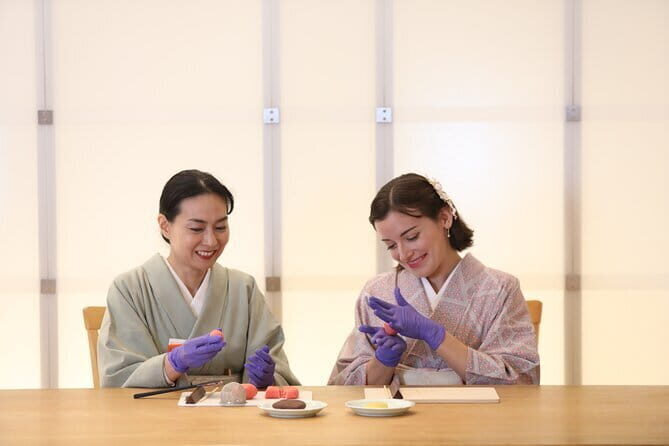
Experience making traditional nerikiri sweets in a serene Tokyo temple setting, guided by expert hosts—perfect for culture lovers and foodies alike.
Making Nerikiri at Tokyo’s Koboji Temple: A Deep Dive into Traditional Japanese Sweets
If you’re looking to spend a peaceful hour in Tokyo learning a treasured culinary craft, this Nerikiri sweets-making experience at Koboji Temple might just be your perfect match. Held in an authentic 24-tatami-mat room and led by friendly guides, it offers an intimate glimpse into Japan’s tea ceremony culture. Whether you’re a foodie, a lover of Japanese traditions, or simply after a calming activity away from the city’s hustle, this class stands out as an enriching choice.
What truly makes this experience shine is the opportunity to create Nerikiri, the delicate, beautifully crafted sweets that are central to tea ceremonies. Plus, the chance to sample matcha tea prepared by kimono-clad hosts and take your handmade treats home adds to its appeal. That said, this experience does not include kimono rentals, which might be a consideration if you’re hoping for a more immersive dress-up moment.
This tour suits those who appreciate cultural authenticity and enjoy hands-on activities. Whether you’re visiting Tokyo for the first time or seeking a meaningful cultural souvenir, this sweets-making class offers a genuine taste of Japan’s culinary artistry.
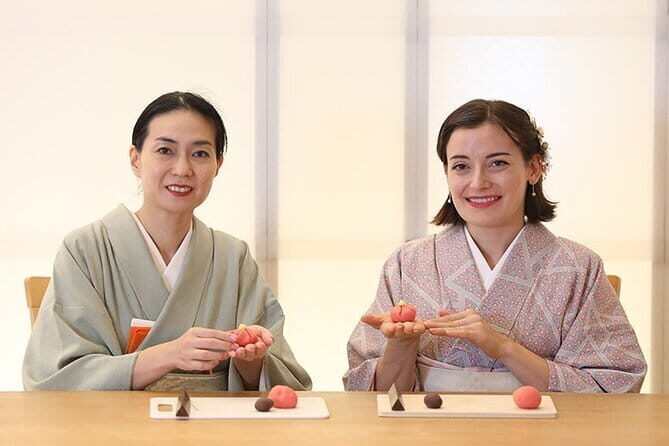
Looking for more options in Tokyo? Here are some other experiences worth considering.
The class takes place at Koboji Temple, a tranquil spot tucked away in a peaceful part of Tokyo. The setting itself is a major highlight—imagine sitting on tatami mats in a traditional room surrounded by wooden beams and paper sliding doors. This authentic environment enhances the experience, making you feel as if you’ve stepped back in time, away from Tokyo’s busy streets.
Reviewers repeatedly mention the “beautiful temple” and the “quiet street,” which contribute to the calming ambiance. One visitor described it as “a perfect way to spend a rainy afternoon away from the crowds,” emphasizing how the setting itself can be as memorable as the craft.
Led by Tae, a host described as “extremely patient and kind,” the instruction is clear, friendly, and accessible even for beginners. The guides speak both English and Japanese, which helps international visitors feel comfortable. The guide’s knowledge about the sweets’ history and significance enriches the session, transforming it from a simple cooking class into a cultural story.
Our reviewer mentioned that the class was an “introduction to making traditional Japanese sweets,” making it ideal for newbies or those with limited experience. The pace is relaxed, yet engaging, with plenty of opportunities to ask questions.
Making Nerikiri is a delicate art. The process involves shaping sweet white bean paste and glutinous rice flour into intricate, colorful forms that resemble flowers or seasonal motifs. You’ll learn how to handle the dough, form various shapes, and achieve that characteristic smooth, polished finish.
The class lasts around 60 minutes, giving enough time to learn, practice, and finish your creations without feeling rushed. The instructor guides you through each step, ensuring you understand the techniques involved in this centuries-old craft.
While you work on your sweets, you’ll sample matcha green tea—served by your kimono-clad host—enhancing the traditional atmosphere. The pairing of refined sweets and bitter matcha creates a classic flavor balance that is as much a part of Japanese culture as the sweets themselves.
One reviewer pointed out that the experience was “a bonus you get to take the sweets home with you,” which adds a practical touch to the cultural experience. This way, you leave with a tangible memory of your time in Tokyo.
At $78.07 per person, this experience offers good value considering the level of hands-on activity, cultural insights, and the authentic setting. Compared to other cultural activities in Tokyo, which can be more expensive and less interactive, this class provides a genuine, skill-based experience that you can replicate later at home.
It is also a private or semi-private tour, making it a more intimate and personalized experience. The inclusion of snacks and guidance enhances the overall value, ensuring you get both education and enjoyment.
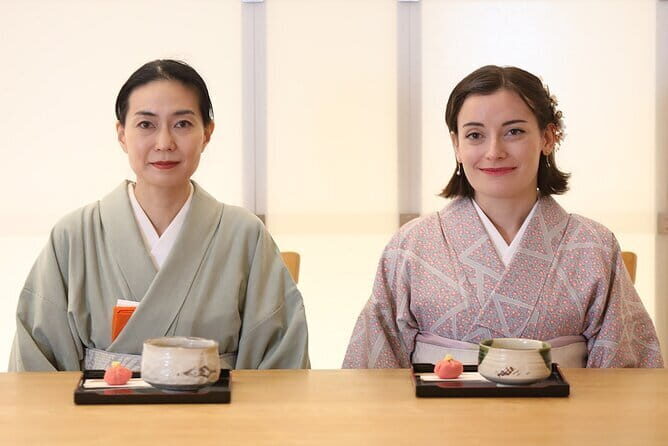
This tour’s strength lies in its authentic setting and knowledgeable guides. Several reviewers mention the “beautiful temple” and “peaceful street,” emphasizing how the environment adds depth to the experience. The fact that it’s hosted in a real temple gives it a spiritual and cultural resonance, making it more than just a cooking class—it’s an immersion into Japanese tradition.
The fact that guests get to take their sweets home means you can share your craftsmanship with friends or enjoy your own handmade souvenirs. Plus, the class’s focus on nerikiri—an integral part of tea ceremonies—means you’ll walk away with a new appreciation for this elegant, historic sweet.

This activity is ideal for curious travelers eager to learn about Japanese customs. It’s particularly suited for those interested in culinary arts, traditional crafts, or tea culture. If you enjoy hands-on activities that culminate in a tangible product, you’ll find this class both rewarding and memorable.
It’s also perfect for travelers seeking a peaceful, offline activity that offers cultural insight without the crowds. The intimate setting and private nature make it suitable for couples, small groups, or solo travelers wanting a meaningful connection with Japanese tradition.
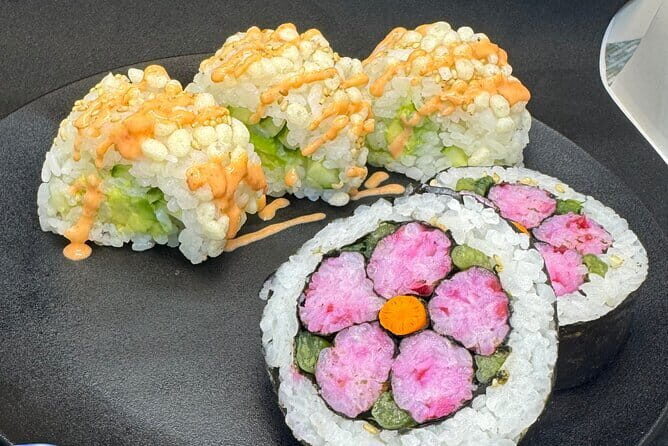
If you are after a relaxed, authentic experience that combines cultural education, culinary skill, and a serene environment, this Nerikiri sweets-making class at Koboji Temple checks all those boxes. You’re not just observing; you’re actively participating in a tradition that spans centuries. Plus, the opportunity to enjoy matcha, create beautiful sweets, and then take them home makes it a well-rounded, worthwhile activity.
While it doesn’t involve kimono dressing, the peaceful temple atmosphere and expert guidance compensate beautifully. It’s a chance to slow down, learn, and create—a perfect cultural escape in Tokyo.
In summary, this tour offers a rare glimpse into Japan’s sweet craftsmanship, making it an excellent choice for food lovers, culture enthusiasts, and anyone wanting a memorable, hands-on experience.
“This is an introduction to making traditional Japanese sweets, and as a bonus you get to take the sweets home with you. Tae was the perfect hostess…”
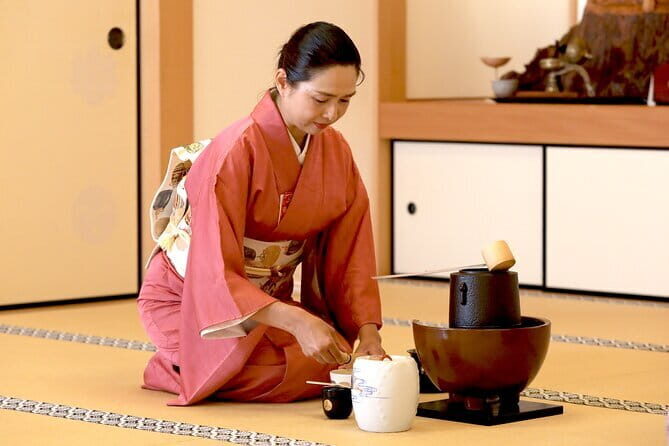
Is this experience suitable for complete beginners?
Yes, the class is designed as an introduction, and the guides are friendly and patient, making it accessible for those with no prior experience.
How long does the class last?
The activity takes about 60 minutes, with some flexibility depending on your pace.
Are kimonos provided for guests?
No, guests are not provided with kimono rentals, so dressing up isn’t part of this experience.
Can I get a full refund if I cancel?
Yes, free cancellation is available up to 24 hours before the experience.
Where is the meeting point?
The class starts at 2-chome-12-5 Mita, Minato City, Tokyo 108-0073, Japan, and ends back at the same location.
Is this activity suitable for children?
While not explicitly mentioned, the hands-on, cultural nature suggests it is more suitable for older children and adults who can focus on the craft.
Is transportation included?
No, transportation is not included, but the location is near public transit, making it easy to reach.
This experience truly offers a taste of Japan’s culinary and cultural heritage, packaged in a peaceful setting that leaves you with new skills, memorable sights, and perhaps a new appreciation for the art of Japanese sweets.